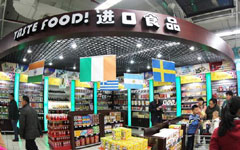Despite the fact that olive oil accounts for only 1 percent of China's total edible oil consumption, the country's olive oil imports remained strong and hit 43,400 metric tons in 2013, an increase of 5.8 percent from the previous year.
The growing trade figure has also pushed Chinese companies to seek takeover targets overseas that can help meet demand for olive oil back home.
|
 |
 |
Another major deal was sealed by Jiangxi Qinglong Group, which invested $32 million in Australia to purchase 5,000 hectares of olive plantations last year, as well as half of the shares in Tatiara Olive Processing Pty, a major olive oil processing company in Keith, South Australia.
The Chinese company will invest another $12 million to purchase new equipment and build needed infrastructure to ensure future production. This project is expected to produce 25,716 metric tons of extra virgin olive oil after 15 years and achieve sales revenue of $157 million by then. Both Australia and China will be its main target markets.
"Although Australian olive oil is less renowned than that produced in Italy and Greece, local producers are carrying out strict quality standards to ensure the product's safety," said Shao Yufei, a researcher at the Chinese Academy of Tropical Agricultural Sciences in Beijing.
Shao said a well-developed logistics system, the closer distance to China and appropriate climate conditions are key elements to lure Chinese investment to operate an olive oil business in Australia.
"From a long-term perspective, rising per capita income, an increase in the number of middle-class people and growing demand for more sophisticated food will continue to increase in China," said Zhang Yuxin, a professor at the Chinese Agricultural University in Beijing.
"The biggest attraction of investing abroad is that domestic demand is strong for a number of agricultural products. Products such as olive and palm oil, soybean, beef and certain fruits to a certain extent have become more dependent on foreign markets," Zhang said.
